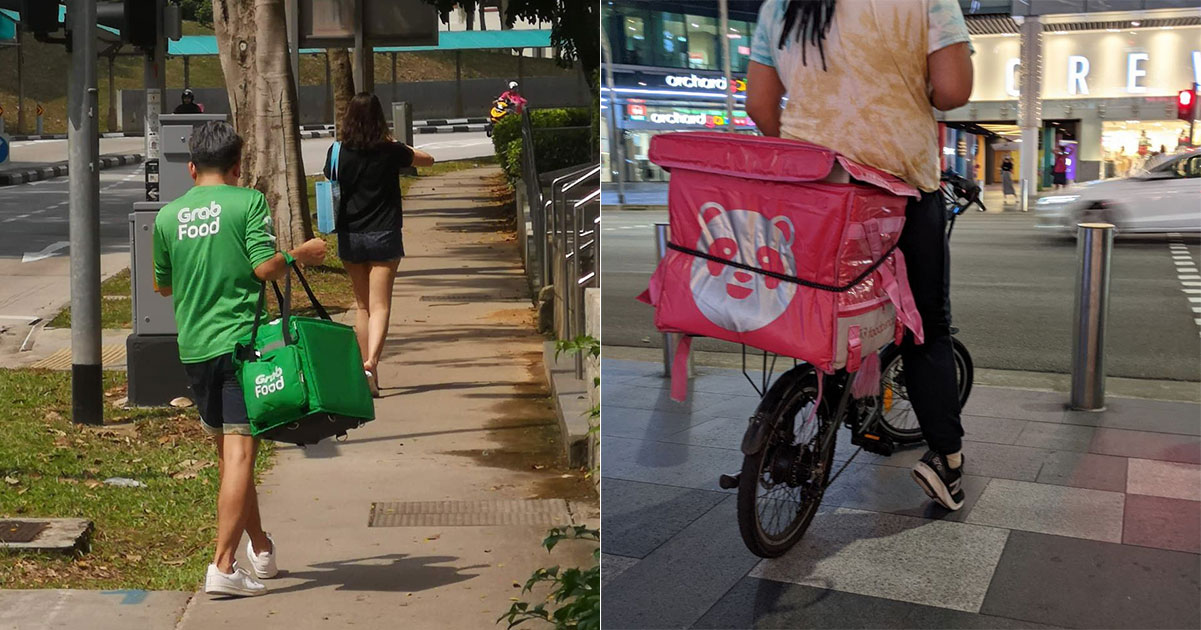Follow us on Telegram for the latest updates: https://t.me/mothershipsg
Singapore’s private-hire vehicle drivers are often working 59 hours a week, a new survey found.
The survey, a working paper based on a study started in 2019 and still ongoing, is by the National University of Singapore’s Institute of Policy Studies and was released on Feb. 28.
Key findings
Here are the key findings:
- About 49 per cent of PHV drivers felt they had no choice but to turn to platform work.
- About 76 per cent of PHV drivers cited flexibility as a reason why they became PHV drivers.
- A delivery rider had to cycle for more than 12 hours a day almost every day to hit S$5,000 income a month.
- The number of hours put in to work takes away time to spend on care-free pursuits.
- Covid-19 and the changes to incentive structures have led to volatility and insecurity for gig economy work.
- Some 57 per cent of PHV drivers said they could tolerate the pressures of job.
- About 40 per cent said they were satisfied with the job.
- Only 20 per cent said their overall quality of life had improved.
- About 44 per cent said their health had worsened since they started driving.
- Around 62 per cent of PHV drivers, labelled as financially stressed, said they did not have enough money for personal and family needs the next three to six months if they stopped working.
- About 50 per cent failed to make voluntary Central Provident Fund (CPF) contributions.
- Those aged 30 to 59 years old were most worried about having inadequate retirement savings while doing gig work.
- Younger, lesser educated workers are viewing platform work as ideal.
- The more educated the PHV driver, the more they feel they lack improvement in entrepreneurial skills.
- Drivers who were aged 50 and above and drivers who derived their full incomes from driving were likely to face difficulty in finding another job.
Tentative conclusions
The survey drew a few tentative conclusions: Gig work gave workers autonomy, but also risk trapping them in poverty and precarity.
This was due to a lack of savings and voluntary CPF contributions, and impede long-term career mobility and take time away from upskilling pursuits -- all of which deter aspirations, such as home ownership and having more free time.
The study relied on observations, as well as surveys and interviews with delivery riders and PHV drivers.
Ride-hailing firm Gojek provided funding for the study, with 958 of its PHV drivers surveyed.
It was discovered that 75 per cent of them drove for other platforms, such as Grab.
A total of 75 in-depth interviews were conducted, with a number of study participants followed and observed at work.
Interventions to mitigate the effects of platform work include formulating laws as a blunt instrument to ensure contributions to CPF, health savings and insurance are made, with a softer approach being to incentivise workers and companies to do so.
Platform apps can also provide prompts for drivers to rest after long periods.
One suggestion to make food delivery more palatable is to improve the urban infrastructure.
Top photos via Joshua Lee & Zheng Zhangxin
Follow and listen to our podcast here
If you like what you read, follow us on Facebook, Instagram, Twitter and Telegram to get the latest updates.
